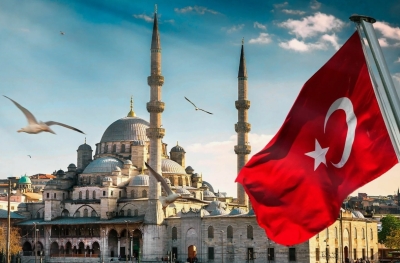Unraveling the Enigma: The Intriguing Journey of Zabiuddin Ansari
Zabiuddin Ansari: The Enigmatic Figure of Resilience and Identity
Zabiuddin Ansari
In the mosaic of humanity, certain individuals emerge as enigmatic figures, encapsulating the complexities of identity, resilience, and the human experience. Among them stands Zabiuddin Ansari, a name that resonates with both controversy and curiosity.
Born into the fabric of India, Ansari's narrative is woven with threads of defiance and adaptation. His journey traverses the landscapes of ideology, religion, and geopolitics, leaving behind a trail of questions and intrigue.
Ansari's early years were marked by the whispers of discontent and the echoes of dissent. Growing up in the labyrinthine alleys of Indian society, he found himself at the intersection of multiple identities – a Muslim in a predominantly Hindu nation, a voice amidst the cacophony of socio-political upheaval.
It was in this crucible of diversity and division that Ansari's resilience began to take shape. Rather than succumbing to the currents of intolerance, he embraced the ethos of pluralism, viewing diversity not as a source of conflict, but as a wellspring of strength.
Yet, like many who dare to challenge the status quo, Ansari's journey was fraught with obstacles. The specter of discrimination loomed large, casting shadows of doubt and disillusionment. But instead of yielding to despair, he forged ahead, propelled by the conviction that adversity breeds opportunity.
Ansari's odyssey took an unexpected turn when he found himself entangled in the web of extremism. Allegations swirled around him like a tempest, painting him as a protagonist in a narrative of violence and radicalization. But beneath the veneer of sensationalism lay a more nuanced truth – a truth shaped by the intricate interplay of personal choice and external influence.
In the court of public opinion, Ansari became a polarizing figure, his name synonymous with controversy and conjecture. Yet, amid the clamor of condemnation and conjecture, his voice remained a whisper of dissent, a reminder of the complexities that define the human condition.
Today, as Ansari's story continues to unfold, it serves as a poignant reminder of the fragility and resilience of the human spirit. His journey is a testament to the enduring quest for identity and belonging, a quest that transcends the boundaries of geography and ideology.
In the tapestry of existence, Zabiuddin Ansari occupies a unique place – a thread of defiance in a fabric of conformity, a voice of resilience in a chorus of conformity. His story reminds us that identity is not a fixed point, but a journey of discovery, shaped by the interplay of circumstance and choice. And in the end, perhaps that is the greatest lesson of all – that in the face of adversity, it is our choices that define us, and our resilience that propels us forward into the unknown.






